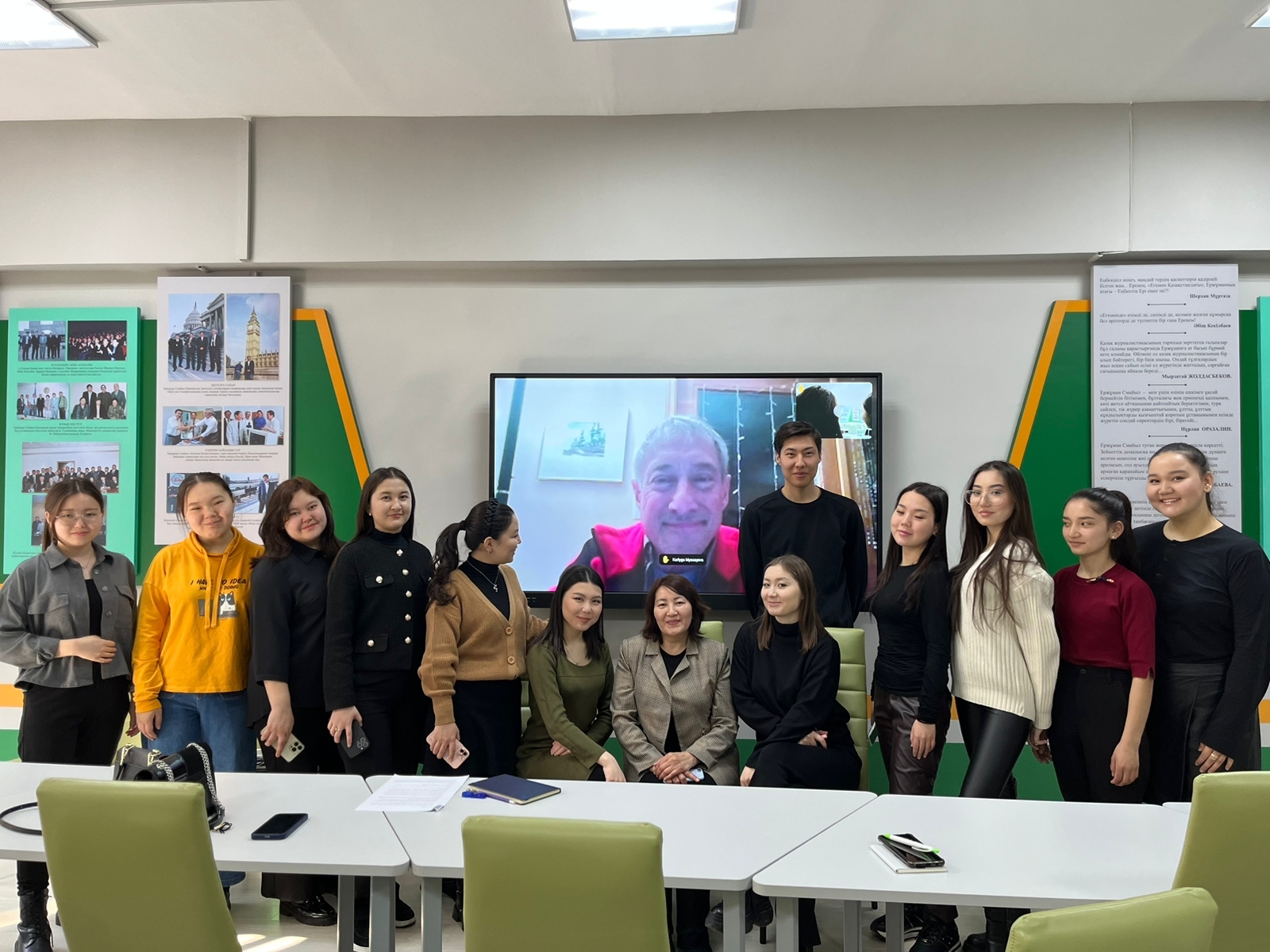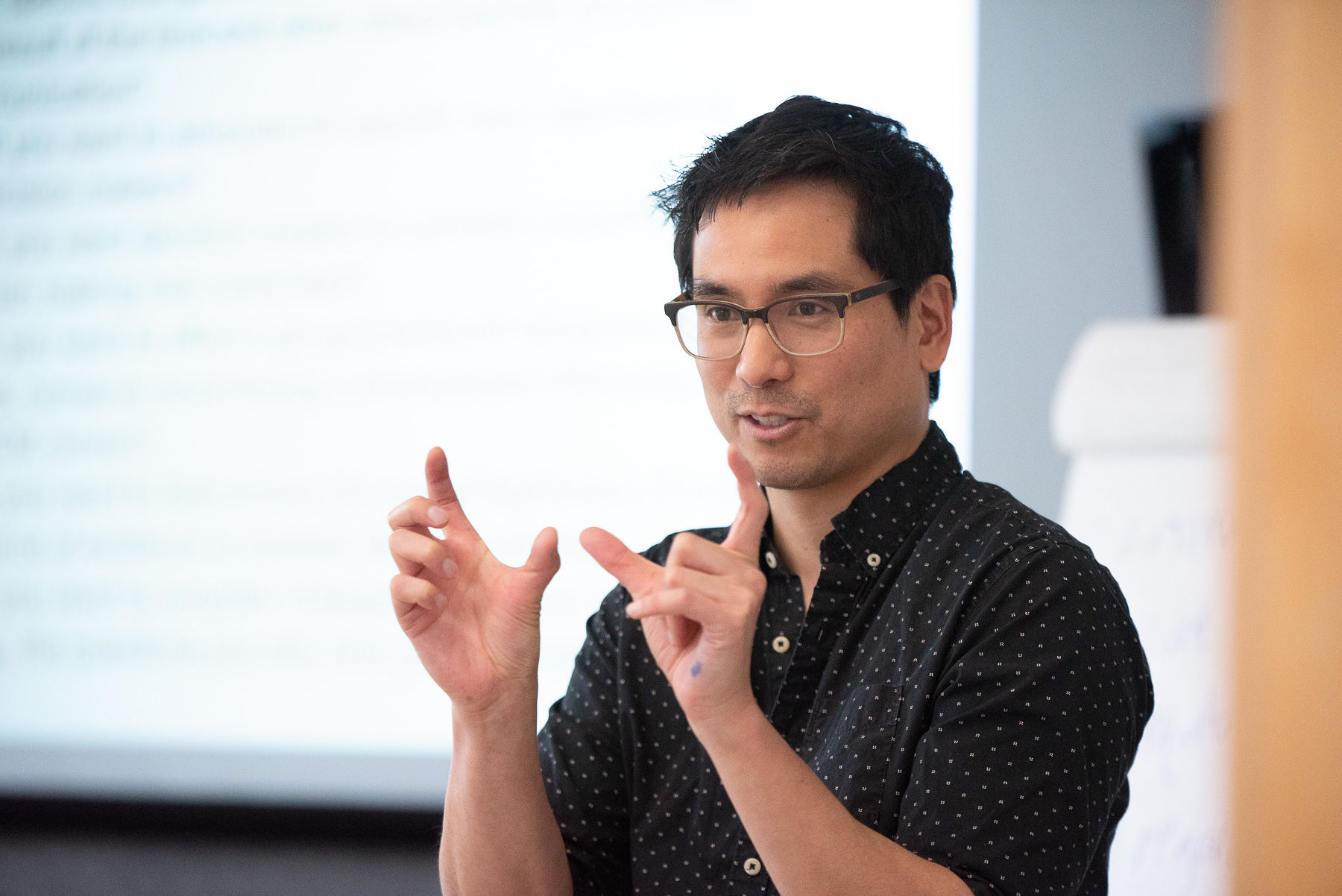An MSU Knight Center student’s podcast episode ranked among the top 20 solutions journalism stories by the Solutions Journalism Network. What the judges said of the story by Cassidy Hough appearing on the center’s The Food Fix podcast: “It’s not only a great example of student journalism, it also shows…that solutions reporting ‘can — and does — translate well into entertaining and informing podcasting.’ It’s a fun, in-depth and remarkably concise answer to the question, “Could food crops regrow on their own?”
Tag Archives: Knight Center for Environmental Journalism
Eric Freedman lecture to students at Al-Farabi Kazakh National University: six challenges faced by environmental journalists today
Knight Center director Eric Freedman recently guest lectured to students at Al-Farabi Kazakh National University in Almaty, Kazakhstan.

Eric Freedman pictured with students at Al-Farabi Kazakh National University.
In his lecture, Freedman discussed the important role of environmental journalism in public life. He discussed how the stories environmental journalists produce often have a direct influence on government policy and public health. Environmental journalists are often required to communicate complex topics in a way that is easy to understand for general audiences, making them essential for the public’s understanding of environmental issues.
Despite its critical importance, environmental journalism faces many challenges. Speaking with students at Al-Farabi Kazakh National University via Zoom, Freedman outlined six major challenges faced by those working in field.
Knight Center collaboration with University of Rhode Island seeks to bring more diverse voices to science communication

Dr. Bruno Takahashi, research lead for the SciComm Identities Project. Photo by Phoebe Neel
A recent partnership between Michigan State’s Knight Center for Environmental Journalism, the University of Rhode Island’s Metcalf Institute, and URI’s Science and Story Lab aims to expand diversity and create more inclusive spaces for the next generation of science communicators.
The SciComm Identities Project (SCIP) is a five-year project backed by $2.8 million in grant funding from the National Science Foundation. The project aims to promote racial and ethnic diversity within the field by developing science communication training that is centered on the identities, motivations, and experiences of racial and ethnic minority scientists.
While progress has been made to bring more voices into the field, historically marginalized scientists still face obstacles throughout their careers.
Environment reporter talks AP with Knight Center students

John Flesher, left, speaks with journalism students at the Knight Center about his career at the Associated Press. Image: Barb Miller.
By Marie Orttenburger
John Flesher has spent almost his entire news career working for the Associated Press.
That’s given him an up-close view of the wire service’s evolution in the past 35 years.
He evolved as well, growing into environmental coverage and providing the AP with Great Lakes news—a coverage area it had not previously explored.
Flesher recently visited Michigan State University’s Knight Center for Environmental Journalism to talk with students about his career path.
He began at the AP doing editing and broadcast writing assignments and general reporting at the Raleigh, North Carolina bureau. He covered a range of subjects before settling into a government and politics beat.
Continue reading
